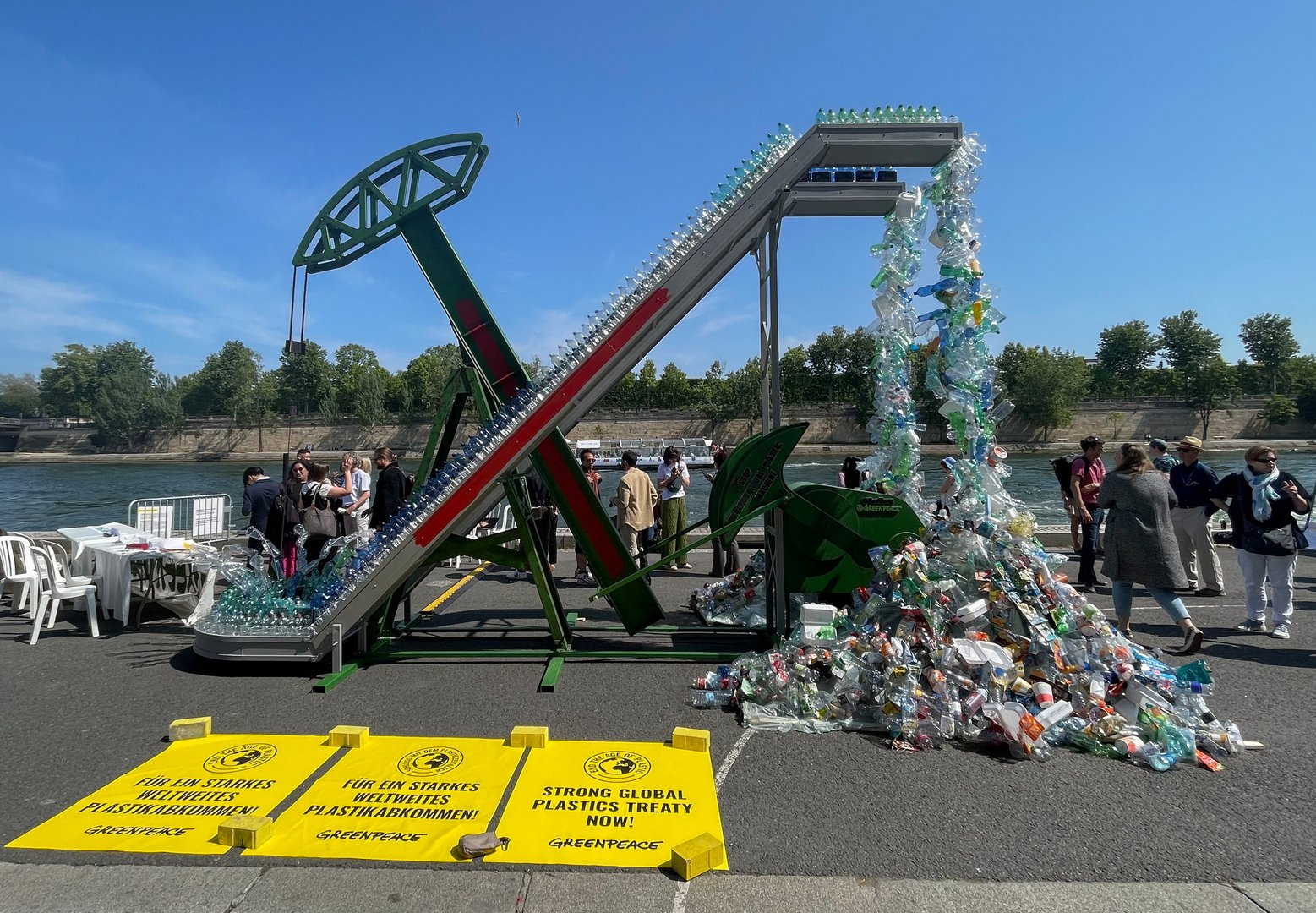By Valerie Volcovici
As talks start this week on a global plastics treaty, debate is emerging between countries wanting to limit the production of more plastics and the petrochemical industry favouring recycling as the solution to plastic waste.
Ahead of a meeting starting on Monday, many countries have said a goal of the treaty should be “circularity” – or keeping already-produced plastic items in circulation as long as possible.
Coming into the talks in Paris, a 55-nation coalition called for a strong treaty including restrictions on certain hazardous chemicals as well as bans on problematic plastics products that are hard to recycle and often end up in nature.
“We have a responsibility to protect human health in our environment from the most harmful polymers and chemicals of concern through the treaty,” said Rwanda’s environment minister, Jeanne d’Arc Mujawamariya, who is the co-chair of the High Ambition Coalition to End Plastic Pollution.
French President Emmanuel Macron said “there is no time to lose” on the issue.
“The aim must be to produce a text that everyone agrees on by the end of 2024, a year before the United Nations Conference on Oceans in Nice,” he said in a video message released on Monday.
The UN Environment Programme (UNEP), which is hosting the talks, released a blueprint for reducing plastic waste by 80 per cent by 2040. The report, issued earlier this month, outlined three key areas of action: reuse, recycling and reorientation of plastic packaging to alternative materials.
Some environmental groups criticised the report for focusing on waste management, which they saw as a concession to the global plastics and petrochemicals industry.
“Real solutions to the plastics crisis will require global controls on chemicals in plastics and significant reductions in plastic production,” said Therese Karlsson, science advisor with the International Pollutants Elimination Network.
Under a new group, called Global Partners for Plastics Circularity, the industry has put mechanical and chemical recycling at the center of its position.
UNEP Executive Director Inger Andersen told Reuters that the criticism of recycling being in the report ignored the report’s broader recommendations for overhauling packaging.
“We’re talking about redesign, and when we’re talking redesign, it’s everything that we need to do so that we use less plastic,” she said. “That’s where it begins.”
PUBLIC HEALTH WORRY
During the first round of talks last November in Uruguay, countries set an ambitious deadline of having a legally binding treaty agreed within a year.
As yet, delegates were still deciding on the treaty’s core objectives – including whether some plastics should be banned and ways to improve waste management.
Countries also have yet to resolve key issues including methods for financing policies as well as how policies would be implemented and reported on.
This week, dozens of countries were listing public health as one of their priority concerns in limiting plastics production and waste. The UNEP report also identified 13,000 chemicals associated with plastic production, more than 3,000 of which were considered hazardous.
Greenpeace, meanwhile, issued a report collecting findings from scientific research papers that suggest plastic recycling processes can release many of these chemicals including benzene into the environment.
While the United States is not a coalition member, a State Department official told Reuters that it shares the group’s ambition but favours an approach in which countries develop their own national action plans, similar to the Paris climate agreement.
The US plans with UNEP this week to announce a grant to help developing countries take immediate action on plastic pollution.







Click here to change your cookie preferences